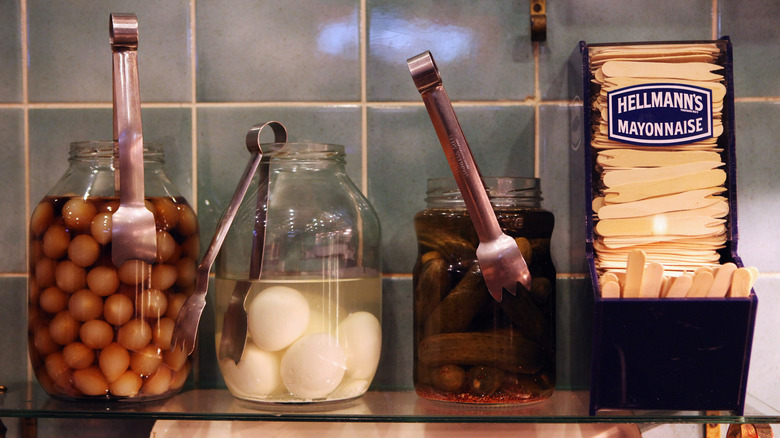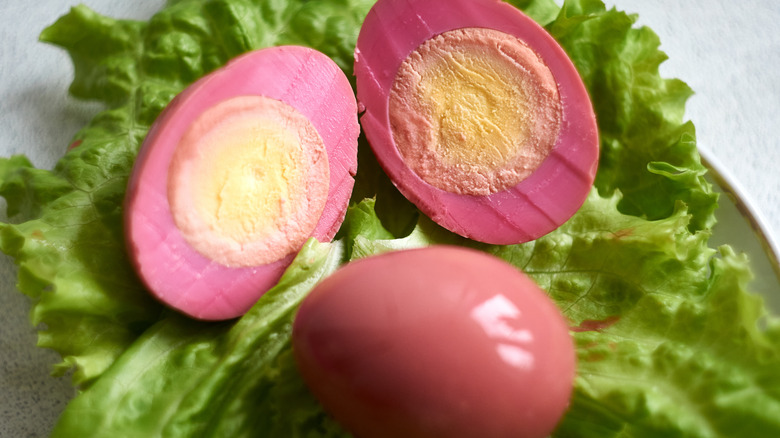How Long Do Pickled Eggs Last For?
Love them or hate them, pickled eggs are no stranger to controversy. Some enjoy them in all their variations ranging from Asian cuisine-inspired soy sauce and sriracha-infused eggs to Pennsylvania Dutch-inspired beetroot-infused eggs. Others are not so keen. Perhaps the biggest controversy, though, is how long they last once pickled.
Most variations of pickled eggs are not traditionally canned. Instead, boiled eggs are immersed in a solution containing vinegar and other preservatives or flavoring ingredients. The National Center for Home Food Preservation recommends you eat pickled eggs within three to four months to ensure safety and quality.
A four-month shelf life is impressive when compared to traditional hard-boiled eggs. The American Egg Board recommends consuming them within a week of boiling them. Fresh raw eggs themselves have a fairly long shelf compared to other fresh foods, since you may use them for up to five weeks from packing if properly stored in the refrigerator. Still, pickled eggs are hard to beat when they stay delicious for a few months!
The next big controversy is whether it is safe to eat pickled eggs stored at room temperature. If you've visited an old-school British pub or an American dive bar, you may have seen jars of pickled eggs on the shelf as a nod to the days when the eggs were a popular bar food. Often, those jars have a thin layer of dust on the lid. You may wonder whether they are safe to eat; the answer depends on who you ask.
Are pickled eggs shelf-safe?
While generations of people ate pickled eggs stored at room temperature with minimal issues, the CDC does not recommend this and even issued a report in response to bacterial infections resulting from people eating pickled eggs.
As Michigan State University explains, eggs are naturally low in acid, with a PH of 6.4 to 9.0, making eggs an attractive and nutritious place for bacteria to thrive. While pickling involves infusing them with acidic vinegar, it is possible that some spots within the egg don't absorb enough vinegar. In that case, pickled eggs stored at room temperature can potentially expose you to foodborne illnesses and bacteria, including Botulism infection.
Despite the warnings, when prepared and stored safely, pickled eggs are a delicious and nutritious snack due to their high protein content. Making them at home is relatively easy, just be sure to follow safety precautions suggested by the National Center for Home Food Preservation. Always start with a clean pan, clean utensils, and sterilized jars. Also, inspect each egg to ensure the shells are intact, and wash the shells before boiling them. Seal the jars tightly and store them in the refrigerator throughout the two to four weeks of pickling.
If you want to try making your own pickled eggs, feel free to try our recipe.

